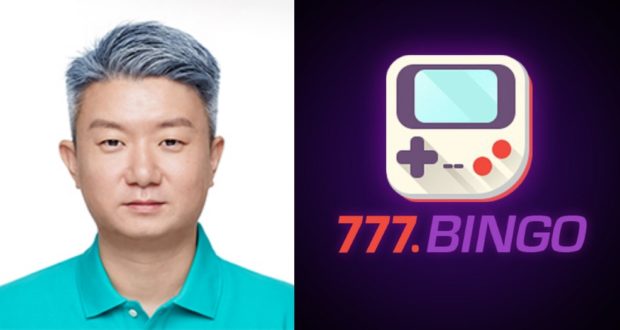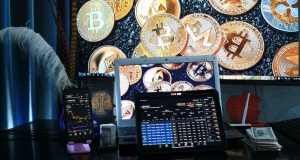Most people associate blockchain with alternative currencies or the newfound hype surrounding Bitcoin. While it is true that the first popular case of decentralized information and value storage was and is Bitcoin, not many people know about the inherent value and benefits of using blockchain technologies.
At its simplest, decentralized apps, or DApps, are applications that run on a network that is not under the control of any one entity. If you think about the emails in your Gmail inbox, or your profile and all of your content on Facebook, those are all controlled by Google and Facebook, respectively. The beauty of the blockchain is that it allows private individuals to own and control their own content and to manage the way they use it, monetize it if they see fit, and to share or restrict it however they wish.
Why Games on the Blockchain?
To bring the discussion closer to home, if you think of Apple's App Store or Google's Play Store, anyone can apply to have their content published on those platforms. However, decision-making power about what gets listed and what does not, and whether or not something remains listed, still lies in the hands of Apple and Google - central authorities who are free to act according to their own discretion.
This major shortcoming is why Matt Lee, a serial entrepreneur and seasoned tech and game developer, launched BINGO, a cross-functional entertainment platform that will allow game publishers and game players to interact in an organized, transparent, secure, democratic, and professional manner; all without bias. In essence, what Matt and his team of over 100 engineers at Mob Arts, a tech and entertainment company, want to do is bring the power and benefits of blockchain to the game industry.
Key Features
Bingo is essentially a game store, much like the App Store or Google Play. However, instead of using traditional currencies, it uses a coin native to the Bingo ecosystem called 777 that can be securely stored in, or traded between, Bingo wallets. All that is needed for game development, publishing, or for making game payments are the Bingo platform and the Bingo wallet.
As a result, the system as a whole is more than just a platform for content creation and distribution. Firstly, content creation and publishing are free, and content creators are not restricted by lengthy terms and conditions or end-user license agreements that are seen with the App or Play stores. This means getting games out and spreading the word is easier, and the democratic model of user voting takes care of the rest, so the most popular and fun games are rewarded the most while others are forced to improve their offerings, meaning everyone has a fair chance and an equal opportunity to make it big. This is in stark contrast to what we see on the App or Play store where big publishers are able to push their content to the top of the charts and drown out small, independent developers.
In addition to the above, all users of the ecosystem - players, publishers, and advertisers - can earn rewards and tips on Bingo. You earn rewards when players use your content, buy it, or vote for keeping it on the platform, and you can monetize anything by simply assigning a price to it.
A final key feature is built into the design of the system as well: it is made to offer a more enjoyable experience to the Bingo community. Bingo is, above everything else, a community of game developers and players, but it can also have additional modules built on top and into the system. For example, by using tips, users can find someone who is willing to play with them, or they can pay a commission to find people willing to solve a particular problem for them in a game. In this way, users can earn digital currencies or just make friends while helping others solve problems by answering questions or even by helping write a walkthrough of the game. In short, every aspect of gameplay that is seen with traditional games can be built into, analyzed, monetized, and tracked on the platform.
Benefits
As mentioned in the introduction, Bingo is designed to bring the benefits of the blockchain to the game industry. How exactly doing that brings about benefits can be seen by considering the following:
- The difficulties of processing digital payments in the game industry are overcome by using the native BINGO token, 777, across the platform
- Publishing and content creation is no longer in the hands of a few large players. This means small, independent developers and publishers can more easily get listed and attract users
- All participants can rate content, and the earnings from high ratings cannot be swept aside by any central authority because it is recorded in the blockchain
- Player voting, not platform regulations, decides what content is good and bad
- Fair and transparent voting allows users to decide what they want, which is something the App and Play stores currently do not provide
- The entire project is backed by an experienced CEO overseeing an entire tech office, so it is backed by a real and a successful business
Conclusion
In looking beyond the basic benefits of transparency, democracy, and immutable data and information logging, BINGO promises to offer game publishers and developers low barriers to entry, fair and fast access to a wide market of players, and the ability to quickly and easily monetize their offerings. In addition to all of the above, the Bingo ecosystem is working to combine social, advertising, analytics, and other modules to offer all users a truly comprehensive, pan-entertainment system that caters to all their needs.
This specific market segment is one that is expected to grow substantially in the years to come. With blockchain technologies promising to bring about a revolution in the way we do everything, Bingo, with a talented tech team behind it and a game industry visionary at the helm, is poised to completely redefine online games.
 You, Me, and BTC Your Liberty & Bitcoin Podcast
You, Me, and BTC Your Liberty & Bitcoin Podcast





